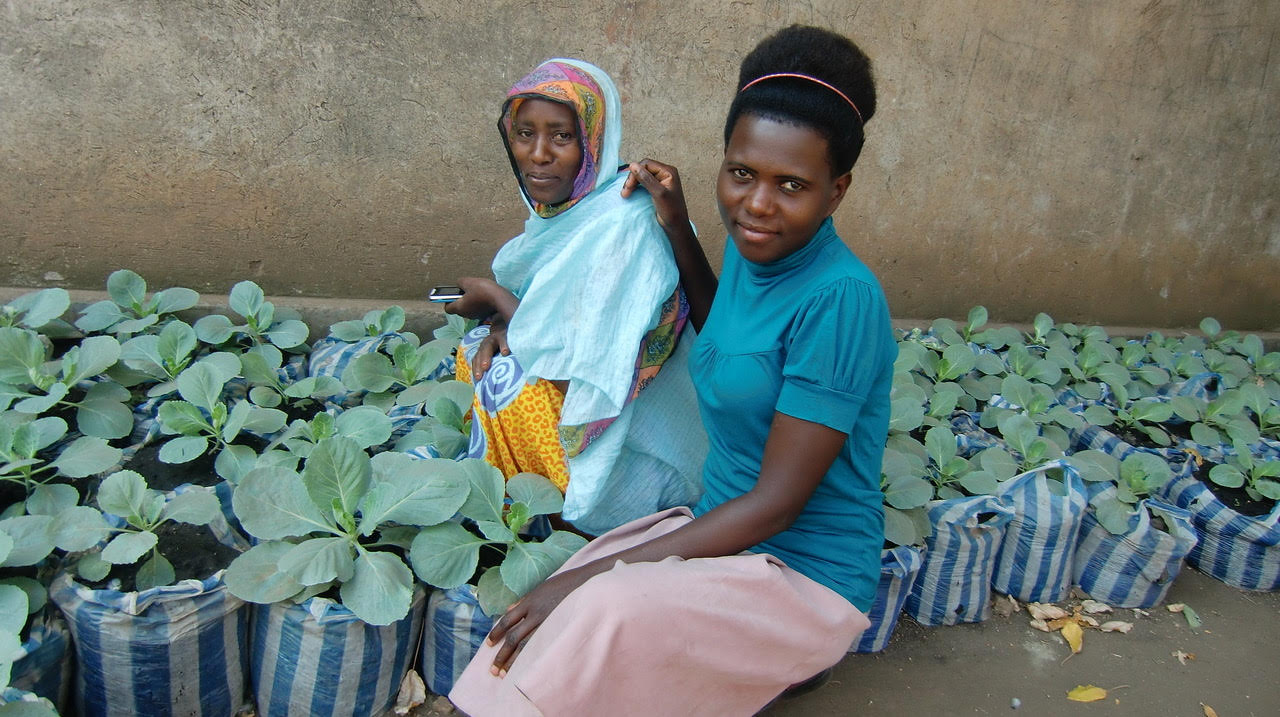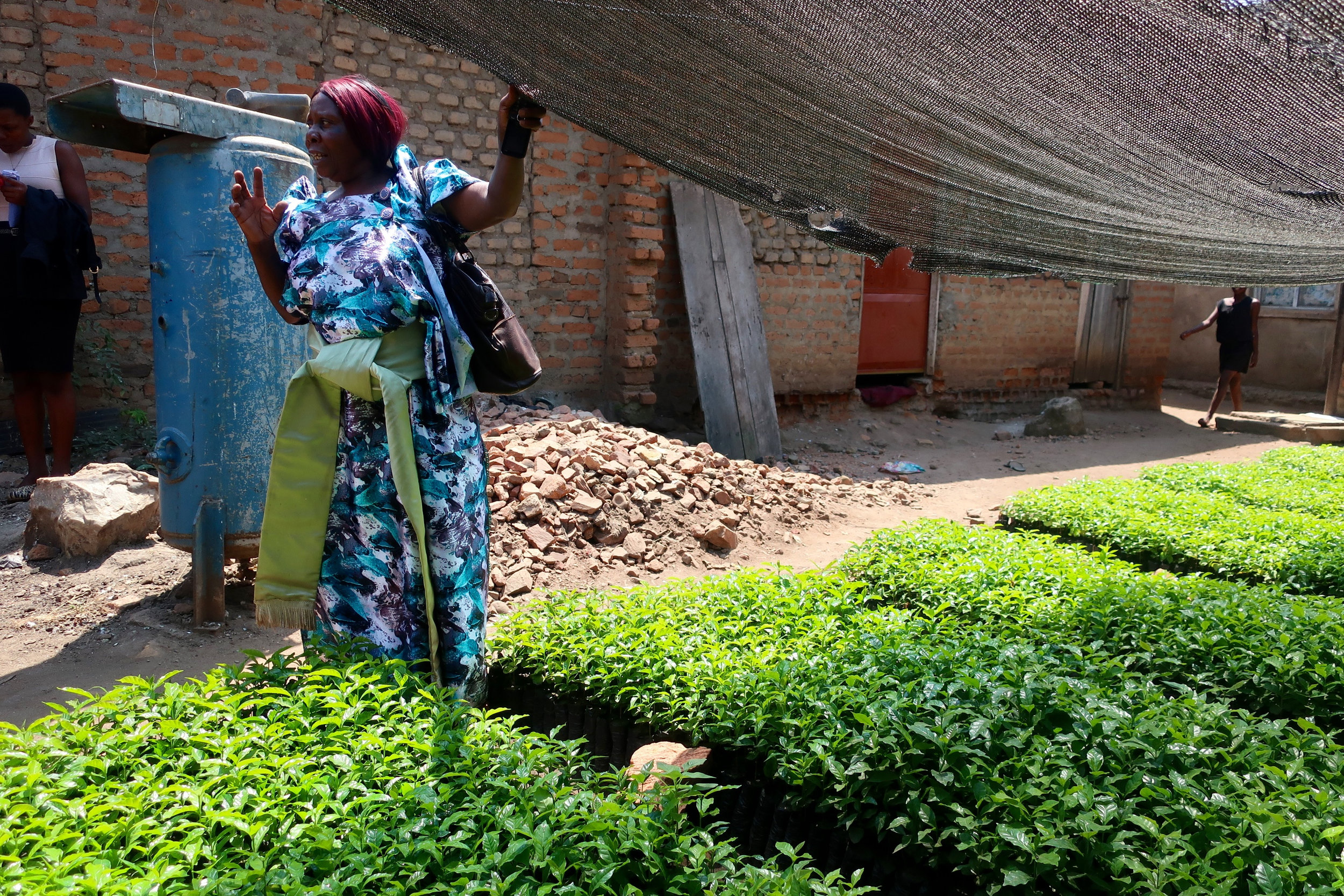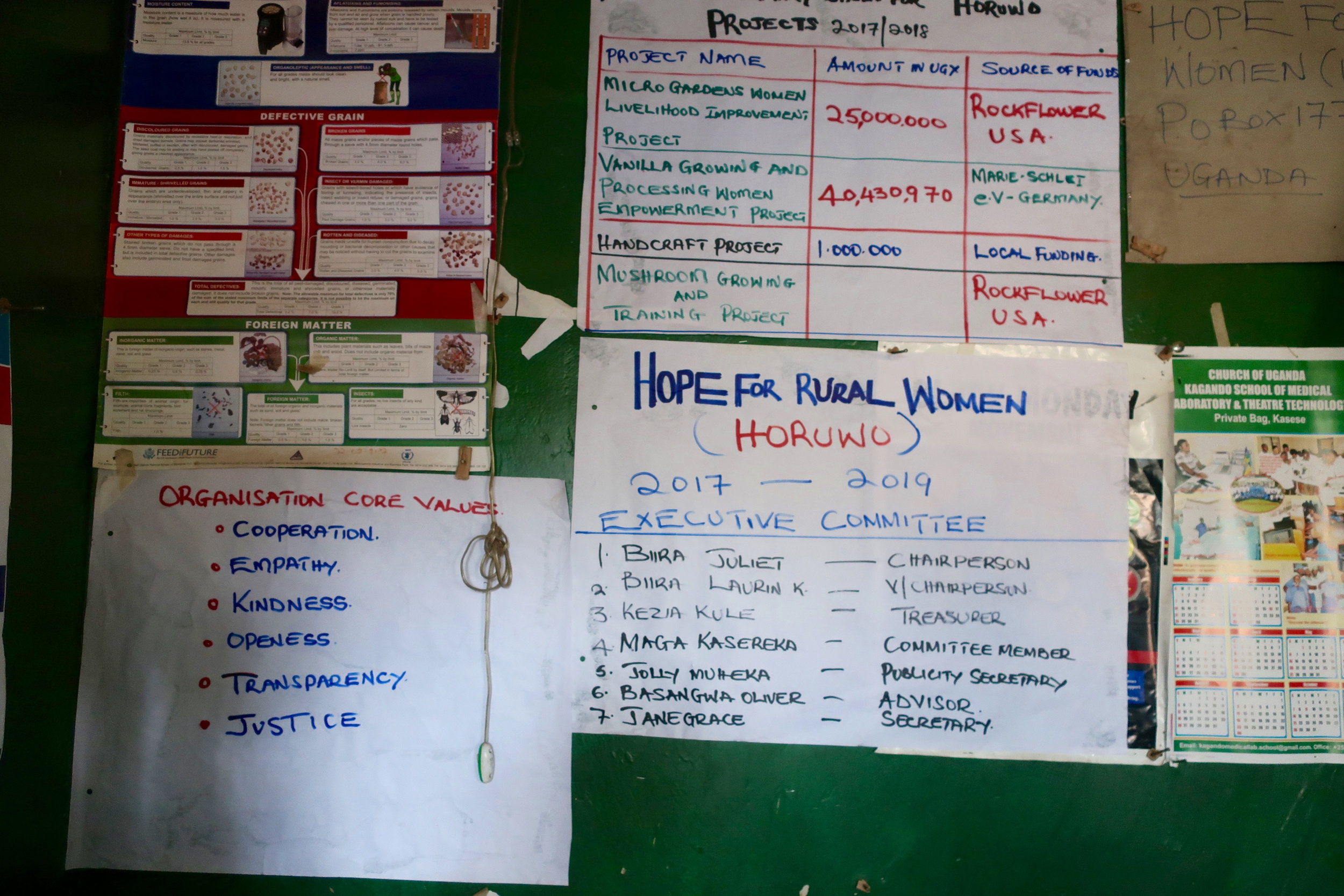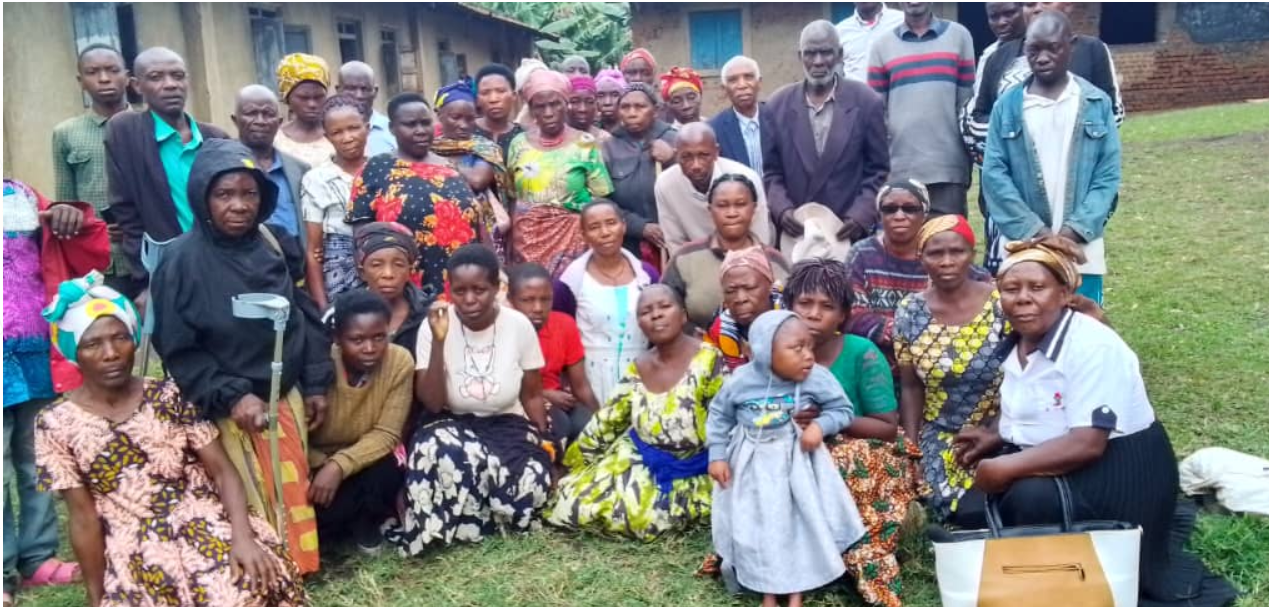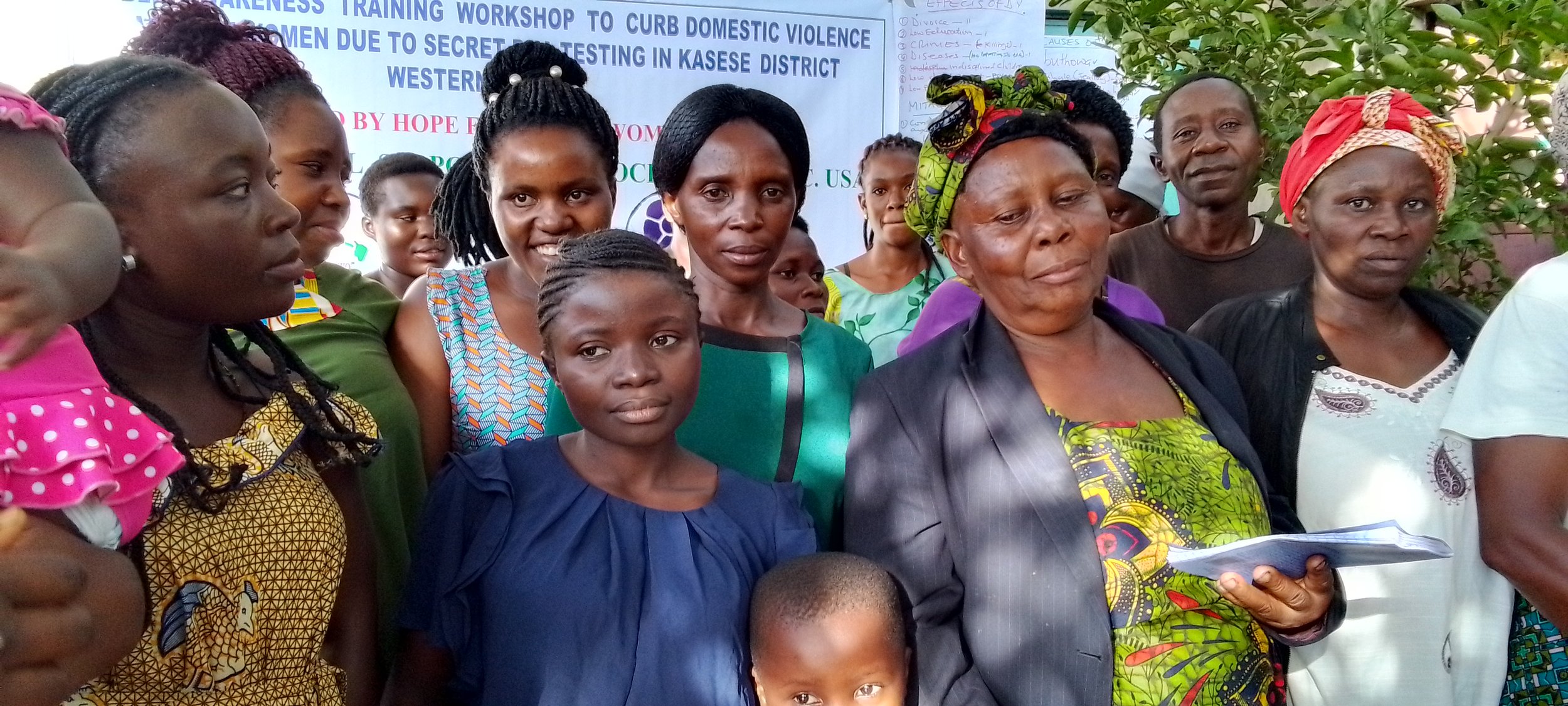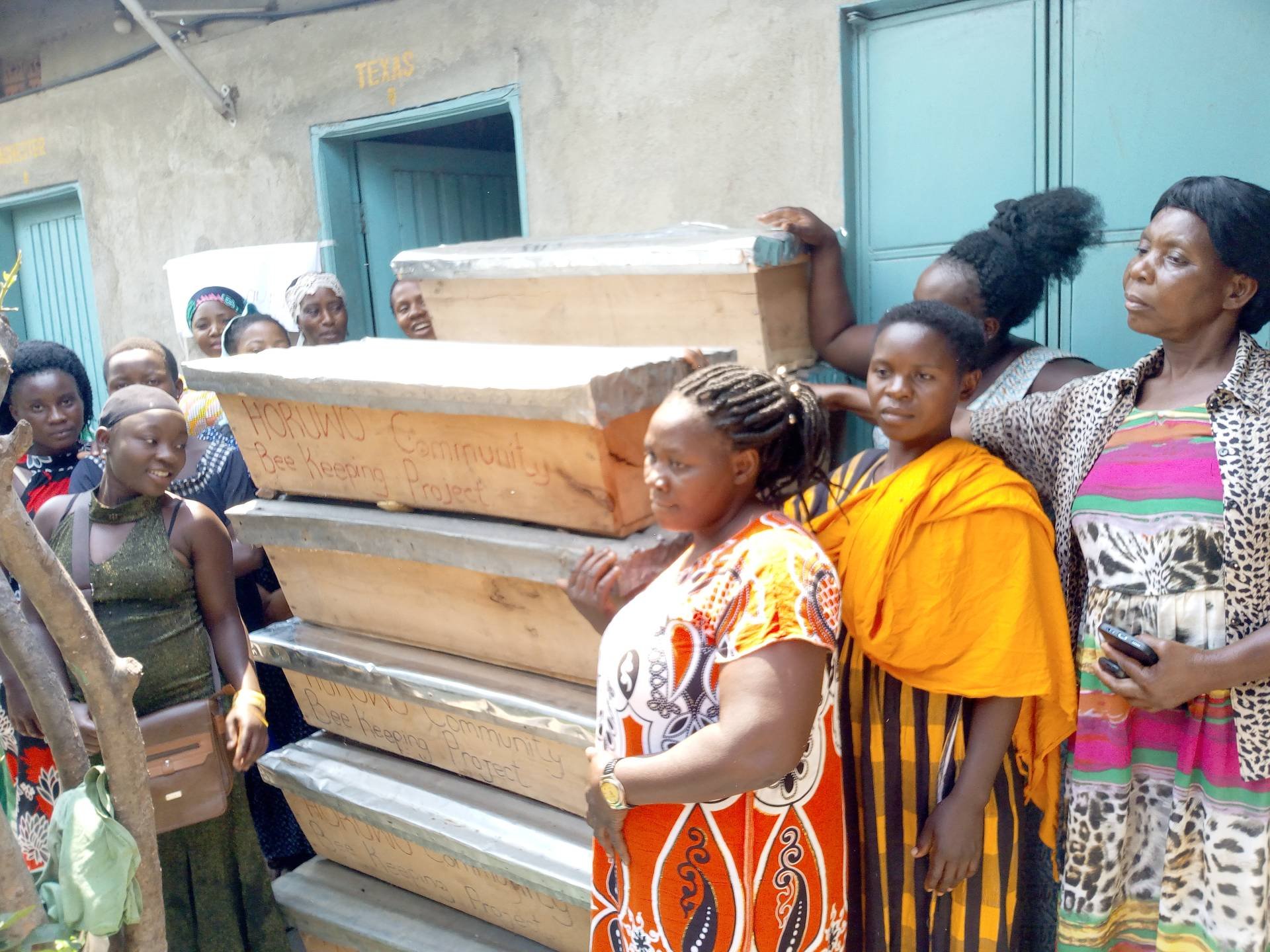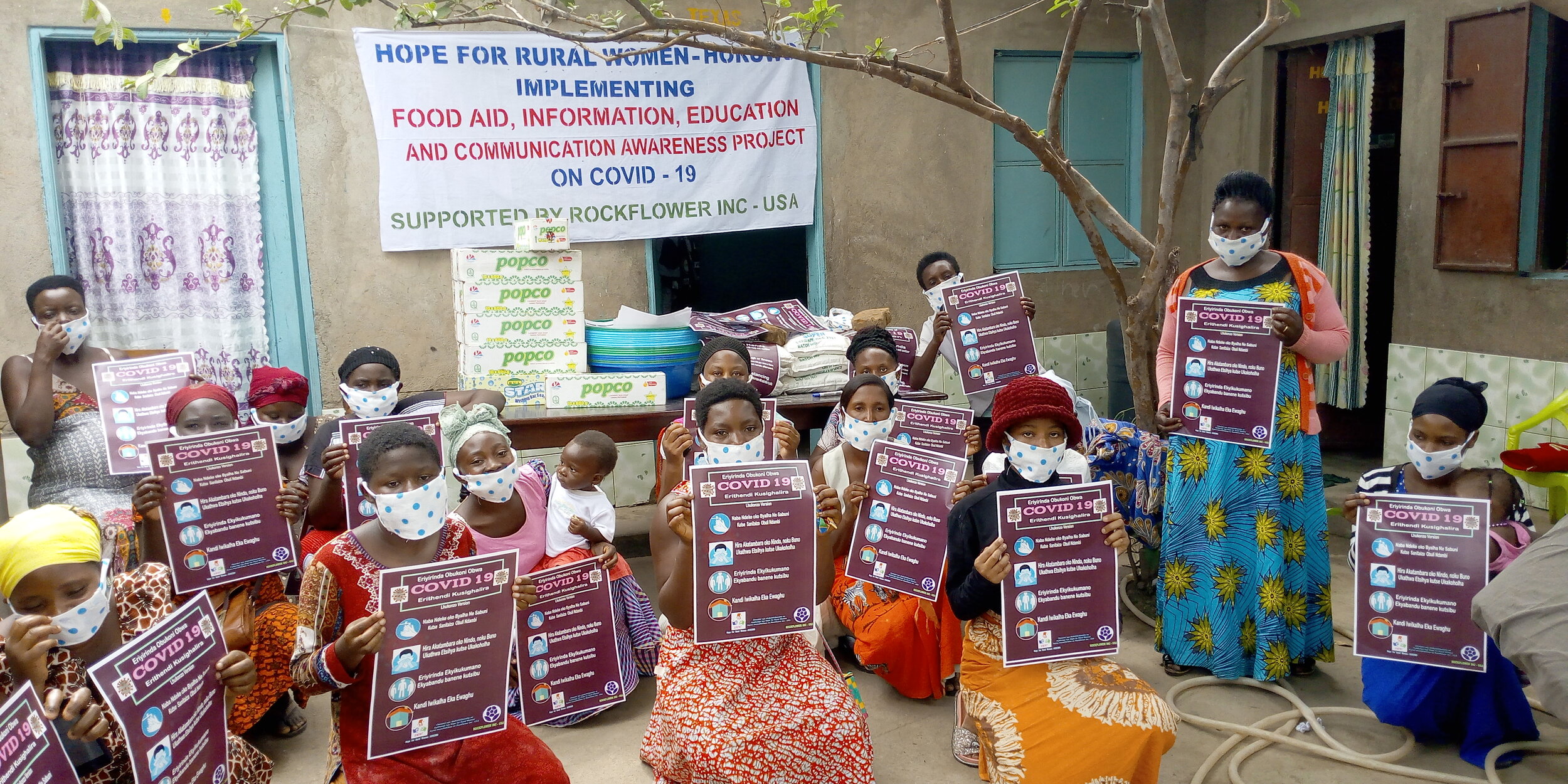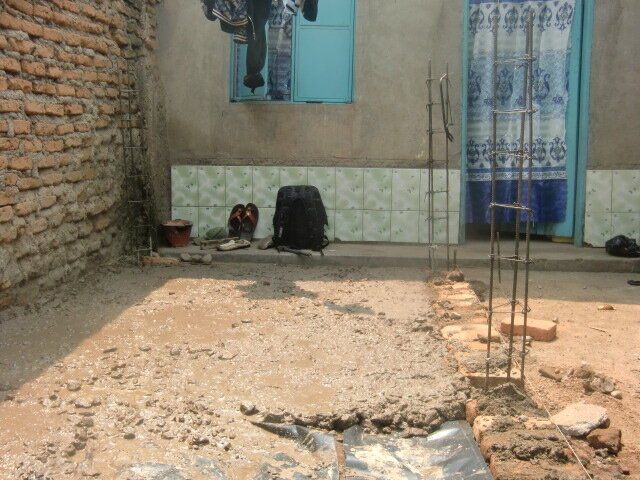Micro Gardens for Food Security Project
Location: Kasese, Uganda
Background
The effects of climate change, in particular the acute drought conditions are drastically affecting the food production base of rural women farmers in Kasese, Uganda. The shortage of food is causing a spike in prices, increasing the burden on local agriculture supply lines and causing many to go hungry. There is a growing need for new approaches to guarantee sufficient food supplies for the women and their communities in Kasese district, western Uganda and to develop Innovations in farming to protect the land and environment from further degradation.
The combination of food insecurity and poverty has had a devastating effect on the rural women of Kasese district. Women are engaging in prostitution as a means of survival and to put food on the table for their children, a practice exposing them to the dangers of unplanned pregnancies and scourge of HIV/AIDS.
Expected Outcomes
Hope for Rural Women will train 50 women from Kasese in Community Knowledge Transfer in Micro Gardening Technology. This technique focuses on enhancing farming productivity for families with limited farming space in urban, semi-urban and rural areas. It involves planting crops on balconies, backyards, rooftops and also cultivating plants in recycled locally available materials such as plastic tins, old car tires and plastic bags.
During the training every woman will be shown how to set up a 2 meter square micro garden - provided with vegetable seeds (cabbages, cauliflower, eggplants, carrots, tomatoes, onions, pumpkins and cucumber) and also be given a plastic rain water harvesting tank which can hold up to 1000 liters’. The women will then harvest the water during the rainy season and store for the future watering of crops in times of rain scarcity.
The project will show the women not only how to create Micro gardens, but additional skills such as how to make organic compost manure necessary for replenishing the exhausted soils and how to identify major threats like pests and diseases and to combat these with organic pesticides.
There are also additional benefits to the scheme which include integrating the use of household waste to produce compost and manure to improve productivity and demonstrating conservation skills through farming practices such as zero-tillage and mulching. A micro garden of only one square meter can produce any of the following: 36 heads of lettuce every 60 days, around 200 tomatoes (30kg) per year, 100 onions every 120 days and 10 cabbages every 90 days, allowing families to easily produce enough food for home consumption and to be able to sell the surplus for extra income.
In addition low-income families can meet their nutritional needs for vitamins, minerals and plant proteins through the provision of fresh vegetables every day.
Above all, micro gardening can give substantial contribution to solve food insecurity especially in rural/urban areas with a lack of fertile soils or which are faced with prolonged drought due to climate change.

